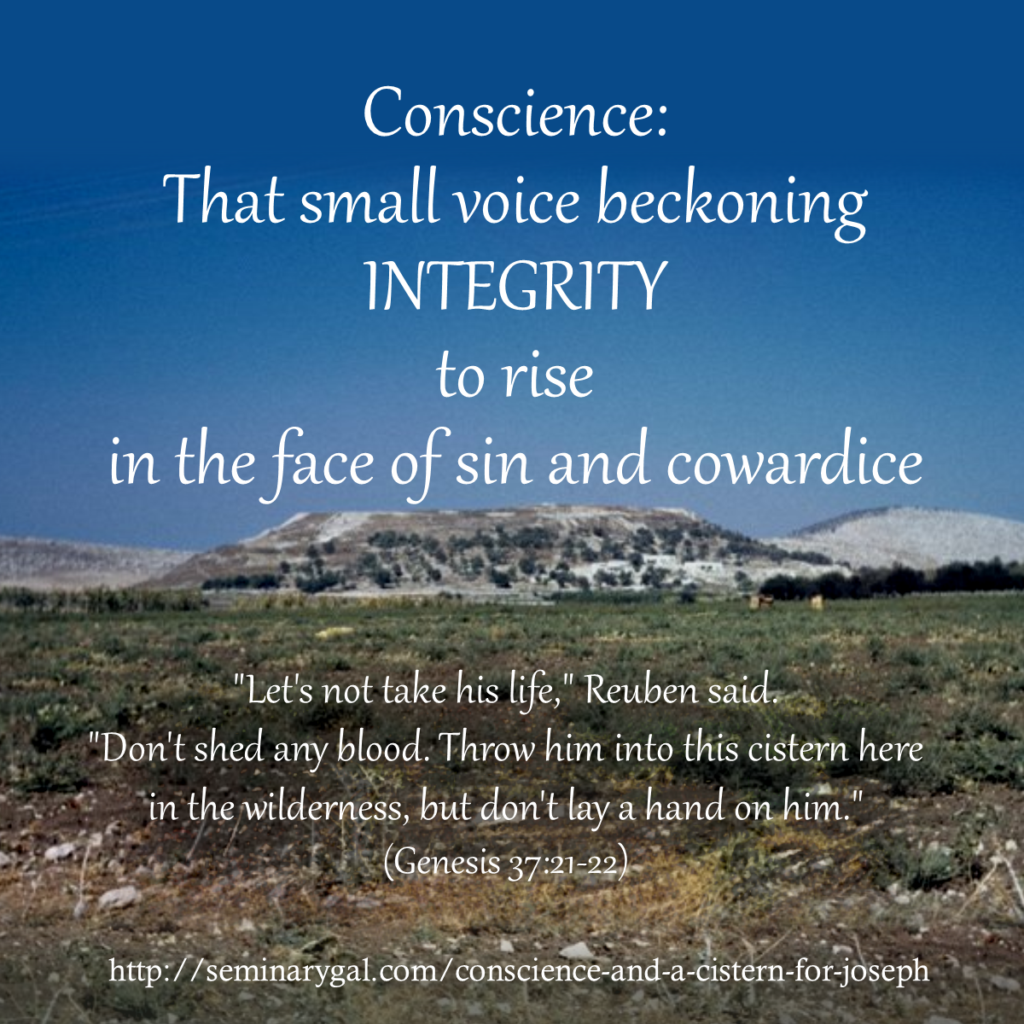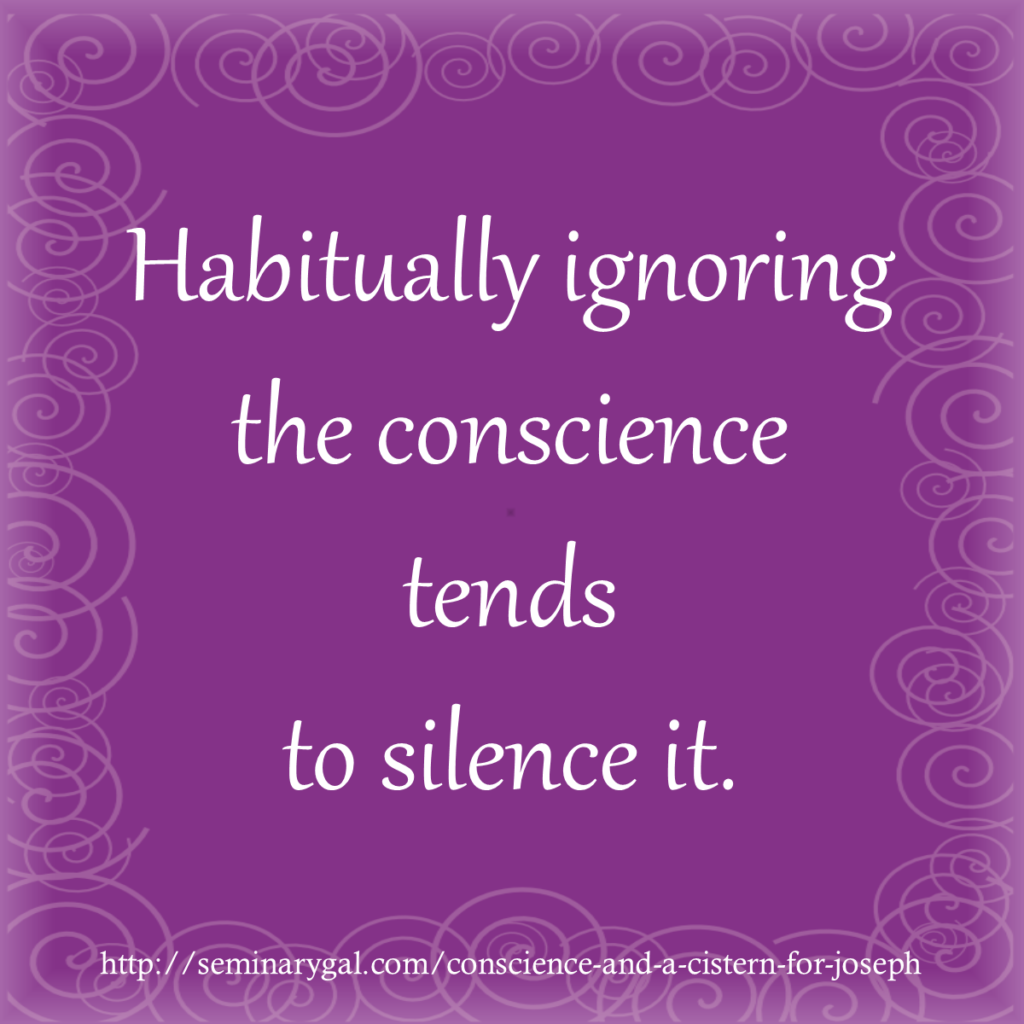Conscience and a Cistern for Joseph
Joseph’s mission to Shechem was divinely redirected to Dothan but his true destination was an empty cistern. Only Joseph didn’t know it. He could not predict–as he paraded in with his colorful coat of authority–that he was about to be stripped of that authority and to hit rock bottom. Of a cistern, that is.
Genesis 37:18 The brothers saw Joseph in the distance, and before he reached them, they plotted to kill him. 19 “Here comes that dreamer!” they said to each other. 20 “Come now, let’s kill him and throw him into one of these cisterns and say that a ferocious animal devoured him. Then we’ll see what comes of his dreams.”
Whether it began as an idle thought of the moment or had been hatched a long time ago as a carefully planned coup, no one knows. One thing’s for sure: most of the brothers failed to heed their own conscience.
Conscience is that small voice beckoning integrity to rise in the face of sin and cowardice. We all have a conscience, but only Reuben stopped to consider his own.

Genesis 37:21 When Reuben heard this, he tried to rescue him from their hands. “Let’s not take his life,” he said. 22 “Don’t shed any blood. Throw him into this cistern here in the wilderness, but don’t lay a hand on him.” Reuben said this to rescue him from them and take him back to his father. 23 So when Joseph came to his brothers, they stripped him of his robe– the ornate robe he was wearing– 24 and they took him and threw him into the cistern.
Think about it:
- In Genesis 37:25 Scripture tells us “Then they sat down to eat a meal” (NAS). What does it say about their conscience that they could carry out a plot like this and then go about life as if they hadn’t done such a horrible thing?
- Eating a meal together in Biblical times meant a degree of fellowship. What might it mean that even Reuben was having a meal with them?
- We aren’t told why Reuben thought to consider his conscience. Perhaps it was a function of his responsibility as the eldest. Maybe he wanted to play the hero and get in on some of that colorful coat action. Or maybe it was an attempt to repair the badly damaged relationship with his father after Reuben’s insolent and indecent behavior recorded in Genesis 35:22. How does conscience intervene in the process of desire-sin-death referred to in James 1:15?
- Habitually ignoring the conscience tends to silence it. In what ways do you see our culture ignoring its collective conscience, and individuals rejecting each his own? What is the likely outcome if we persist?



Leave a Reply